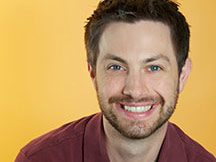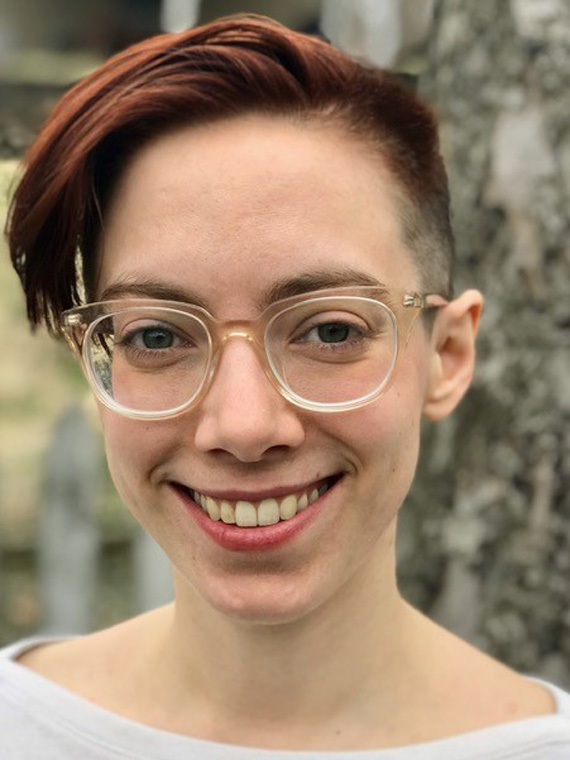For details about this program for summer 2021, please fill out our inquiry form or check back here in the fall.
![]()
The act of playing is an integral part of childhood. In this program, students will learn to code and build video games and accessible electronics for residents of Elizabeth Seton Children's Center. This class will be fully remote with a mix of synchronous and asynchronous content, and embrace the groundbreaking strides made by the crowdsourced medical technology in the maker community in light of the Covid-19 epidemic. Students will stay connected 24/7 through online chats, video conferences, and online learning platforms. By working with technologists and music therapists students have the opportunity to step directly into the world of medical technology and maker culture.
Whether it’s an electronic toy with lights and sounds, 3d modeled figurines, or a complicated side scrolling video game, students will design games to meet the needs of pediatric residents in a real medical setting—underscoring the philosophy that all children should have access to play, regardless of their limitations. Students will virtually work together to create these gaming spaces which can be presented to the residents at the Children’s Center.
Topics covered include Pico-8 and Arduino programming, 3d printing, chip tune music, circuit design, introduction to the medical setting, and more. This program is ideal for those interested in pre-med, medical engineering, remote engineering, 3D modeling & printing, video game design, and computer science who are looking to gain real world experience with professionals in the field.
No prior experience is necessary, but students should possess a spirit of openness, respect, and helpfulness. They will be challenged to look within themselves and share thoughts with their classmates about ability, special needs, and acceptance—and how their own unique gifts can make a difference. Questions such as what it means to help, why it is important, and what students can offer the children at The Center both in terms of adapted games and with their own presence will be considered.
Students in the past have applied their experience towards fulfilling service-learning requirements in their high schools. Instructors are available to work with students to customize classwork to fit service requirements as needed. The total number of hours completed is individualized and dependent on the student's work. Scheduling and meeting times are also negotiable to fit the particular schedule of the student, regardless of time zone.
We welcome students entering the 10th, 11th, or 12th grades the following fall. Commuter students must be age 14 or older at the start of the program. Residential students must be age 15 or older at the start of the program.
Program Details
Courses
Visual Programming
Students will learn the basics of software computer programming through the medium of retro game design, first tackling the fundamentals of computer code in Pico-8 (variables, arrays, functions, and objects) and then learning to apply these fundamentals to project development. Students will work in pairs on coding projects and meet one-on-one with the instructor once a week.
Hardware Hacking
Our second class moves our interactions with computers from the digital to the physical, through an exploration of firmware programming and hardware circuits. Students will learn corresponding fundamentals of computer code (variables, arrays, functions, and objects) in hardware applications. They will also learn the basics of Arduino microcontrollers and circuit design in working with voltage, resistance, and amps. They will develop physical mechanisms to control graphical interfaces and other projects developed in the morning course. Students will work in pairs on projects and meet one-on-one with the instructor once a week.
Introduction to the Medical Setting: Pediatrics and Possibilities
This workshop will prepare students for virtual site visits to the Elizabeth Seton Children’s Center, a residential care center for children with disabilities and medically complex needs. Topics covered will include an overview of the machines at the Center, what a typical day is like for a resident of the Center, and infection control. Students will learn about the ways in which the residents interact with their environment and how the residents typically engage in play, learning, and various therapies (e.g., Occupational, physical, music, art therapy). Students will research and present on a topic—such as a commons diagnosis—to the class. They will work together to imagine life for residents, including role playing different scenarios and discussing case studies. They will also experiment with simple toy switch hacks to increase residents’ accessibility to toys and games.
Additional Workshops
Students will be provided with additional workshops to engage with other students, brainstorm ideas, and prepare prototypes.
Work in a 3D modeling space (such as with TinkerCAD) to create prototype objects to be 3D printed at the Elizabeth Seton Children’s Center. These prototypes might involve adapted objects for playing games or controllers for residents to try.
Sample Projects
- Adapting games to a child’s abilities while taking into consideration their constraints
- Developing a virtual music space
- Prototyping a sensory toy that can be used by children with varying abilities
- Creating individualized solutions for the challenges each child faces
Instructors
Faculty
James Maxson
 James Maxson is a music therapist at the Elizabeth Seton Pediatric Center (ESPC). He will be visiting the Playing for Health Program to teach a community impact course and will facilitate ESPC site visits.
James Maxson is a music therapist at the Elizabeth Seton Pediatric Center (ESPC). He will be visiting the Playing for Health Program to teach a community impact course and will facilitate ESPC site visits.
As a music therapist, James works with residents and staff of ESPC, creating music within a humanistic and client-centered framework. James has collaborated with students and instructors at NYU, Montclair State University, Molloy College, SUNY New Paltz, and Sarah Lawrence College. He has taught music therapy and provided opportunities for students and instructors to create adapted technology for residents of the ESPC. He has also conducted workshops with DIYAbility on the fundamentals of adapting toys for individuals with special needs.
James sources equipment and parts for making and adapting toys and instruments at the ESPC. He also leads and organizes the initiative for iPad integration into daily life for residents of ESPC. He was recently appointed to the position of “Innovation Media Developer” to account for the work he has done with producing videos with residents and staff that further the ESPC mission and online presence, garnering tens of thousands of views on Facebook and YouTube.
Avery Erwin-McGuire
 Avery Erwin-McGuire is an independent software engineer and educator. Her undergraduate degree in computer science from Goucher college focused on both computational theory and embedded engineering. During her time there, she conducted research into robotic artificial intelligence. She was awarded the Phi Beta Kappa Nancy Engelhardt Memorial Prize in the Sciences for her work using two-player games as an environment to demonstrate heuristic decision making.
Avery Erwin-McGuire is an independent software engineer and educator. Her undergraduate degree in computer science from Goucher college focused on both computational theory and embedded engineering. During her time there, she conducted research into robotic artificial intelligence. She was awarded the Phi Beta Kappa Nancy Engelhardt Memorial Prize in the Sciences for her work using two-player games as an environment to demonstrate heuristic decision making.
Prior to her independent work, Avery was a software engineer in the computer chip industry designing low level real-time code for robots and sensor systems in factory settings. Now she creates and teaches technology and engineering workshops to the children and adults in the Westchester area. Her educational style focuses on what she believes are the vital engineering instincts and habits—things like tolerance of frustration, fairness, and systematic reasoning—without sacrificing academic rigor.
Teaching Approach
My goal for the students is to have fun and try new things. I hope the students will become familiar and comfortable with children with special needs and be themselves. I would love to see thinking outside the box in order to help the residents at ESPC have an experience any other child can have.—James Maxson
I’m here to help my students to realize that coding isn’t hard! Technology belongs to all of us, and we all play a role in keeping it grounded in our own experiences and humanity. I want to help every young person find their passion and hand them the tools to bring it to life.— Avery Erwin-McGuire
Schedule
Classes will meet Monday through Friday from approximately 11am to 6pm EST with ample breaks during the day built in. The specific daily schedule details will be determined and sent to enrolled students closer to the program start date.
Program Costs
| Description | Amount |
|---|---|
| Registration fee | $50 |
| Deposit | $250 |
| Remaining tuition | $2,928 |
Limited financial assistance is available for this program. Should Sarah Lawrence be unable to provide the necessary amount possible for you to attend, a full refund of your registration fee and deposit will be provided.